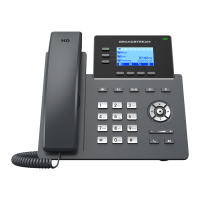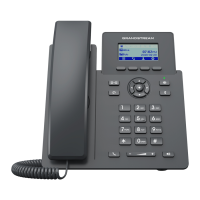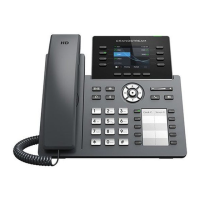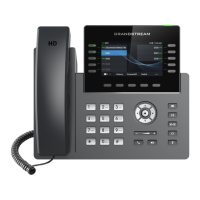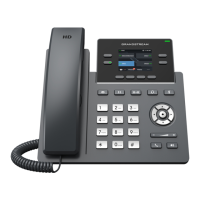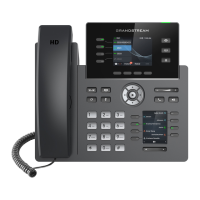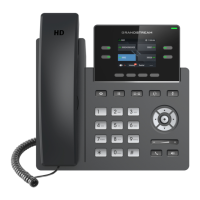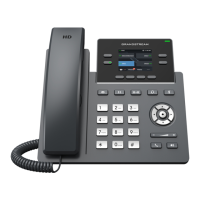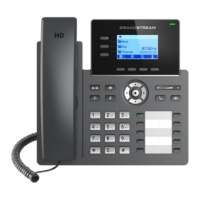Otherwise, they will use the ephemeral port for the connection
The default setting is “No”.
Support SIP Instance ID Defines whether SIP Instance ID is supported or not. Default setting is “Yes”.
SIP T1 Timeout
SIP T1 Timeout is an estimate of the round-trip time of transactions between a client
and server. If no response is received the timeout is increased, and request re-transmit
retries would continue until a maximum amount of time define by T2. The default
setting is 0.5 seconds.
SIP T2 Timeout
SIP T2 Timeout is the maximum retransmit time of any SIP request messages
(excluding the INVITE message). The re-transmitting and doubling of T1 continues
until it reaches the T2 value. Default is 4 seconds.
Outbound Proxy Mode
The Outbound proxy mode is placed in the route header when sending SIP messages, or
they can be always sent to outbound proxy.
● In route
● Not in route
● Always send to
Default is “in route”.
Enable 100rel
The use of the PRACK (Provisional Acknowledgment) method enables reliability to
SIP provisional responses (1xx series). This is very important to support PSTN
internetworking. To invoke a reliable provisional response, the 100rel tag is appended
to the value of the required header of the initial signaling messages. The default setting
is “No”
Use Route Set In NOTIFY (Follow
RFC 6665)
Configures whether to use route set in NOTIFY (follow RFC 6665). If enabled, the
Request URI of the refresh subscription will use the URI in the received NOTIFY
Contact (RFC 6665); otherwise, the URI in the previously subscribed 200 OK Contact
will be used. The default setting is "Yes".
Session Timer
Enable Session Timer
This option is used to enable or disable session timer on the phone side when server
side can provide both session timer UPDATE or session audit UPDATE.
The default setting is “No”.
Session Expiration
The SIP Session Timer extension (in seconds) that enables SIP sessions to be
periodically “refreshed” via a SIP request (UPDATE, or re-INVITE). If there is no
refresh via an UPDATE or re-INVITE message, the session will be terminated once the
session interval expires. Session Expiration is the time (in seconds) where the session is
considered timed out, provided no successful session refresh transaction occurs
beforehand.
The default setting is 180. The valid range is from 90 to 64800.
Min-SE
The minimum session expiration (in seconds). The default value is 90 seconds. The
valid range is from 90 to 64800.
Caller Request Timer
If set to “Yes” and the remote party supports session timers, the phone will use a session
timer when it makes outbound calls. The default setting is "No".
Callee Request Timer
If set to “Yes” and the remote party supports session timers, the phone will use a session
timer when it receives inbound calls. The default session is "No".
Force Timer If Force Timer is set to “Yes”, the phone will use the session timer even if the remote
party does not support this feature. If Force Timer is set to “No”, the phone will enable
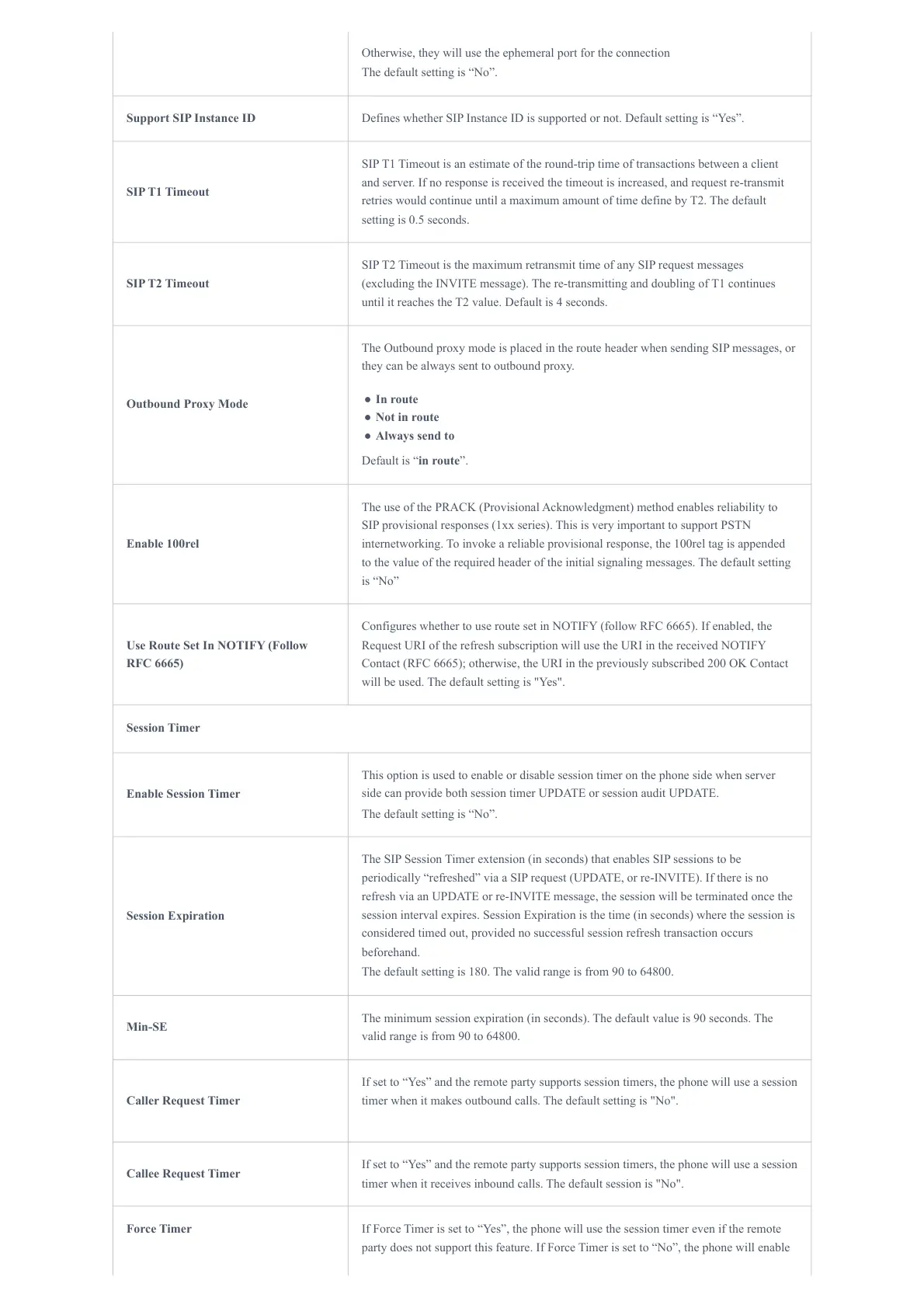